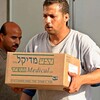
Yesterday Physicians for Human Rights-Israel sent an urgent shipment, worth some NIS 70,000 of medicines to Shifa Hospital in the Gaza Strip. Representatives of the organization entered the Gaza Strip and met with the Palestinian Minister of Health, who expressed his appreciation of the organization�s activities during the current crisis and in general. On 6 June 2006 Physicians for Human Rights-Israel sent an urgent shipment of medicines to Shifa Hospital, the main hospital in the Gaza Strip. Read more about Urgent Mission to Gaza and Call to Israel to Assume Responsibility

Following the state’s refusal to connect her family’s home to the power grid, it is impossible to air condition the home of a three year old cancer patient – this leads to an unhygienic environment, which can cause further and fatal illnesses to the child. The family must keep her injections in a vessel which is refilled daily with ice. The father, a pediatrician who treats dozens of children each day stands astounded while the state turns its back on his sick child. Three year old Enass Al Atrash was diagnosed several months ago with cancerous growths in her chest and since then has been undergoing chemotherapy treatment at Soroka hospital. Read more about In spite of doctor’s recommendation: three year old cancer patient without electricity
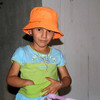
The Association for Civil Rights in Israel (ACRI) and Physicians for Human Rights-Israel petitioned the High Court of Justice yesterday against the Minister of Health, the Minister of National Infrastructure and the Minister of the Interior, and demanded to connect the child�s house to the national electric grid and provide her house with electricity on a regular basis. The petition was written by Attorney Sonia Boulos from the Association for Civil Rights in Israel. Three-year-old Enass from an unrecognized village in the Negev, where the Al-Atrash family resides, was diagnosed in January 2005 with a form of cancer-Rhabdomyosarcoma - which was detected in her chest cavity. The cancer was diagnosed at a very late stage and, as a result, doctors had to treat it with aggressive chemotherapy followed by surgery. Read more about Failure to connect home of Palestinian child diagnosed with cancer to electricity may result in risk to her life
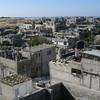
Today Physicians for Human Rights-Israel released a new position paper which warns that a process of planning and coordinating of the provision of external medical services to residents of the Gaza Strip must begin soon, or dozens of patients may die immediately following disengagement. The paper entitled “The Day After” states that Israel will still be required to allow Palestinian patients to receive life-saving treatment in Israel and abroad, even after disengagement, and explains the legal reasons for this. Also, Israel must rehabilitate the Palestinian health care system over the next decade, and to raise the standards to at least those of Jordan. Read more about Israel on the day after disengagement, medical concerns
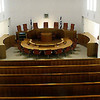
Today the Israeli High Court accepted the Israeli army’s claims in response to an urgent petition filed yesterday by four Israeli human rights organizations. During the hearing, which lasted for well over two hours, the court accepted the army’s claims that in fact all is well in the Rafah region and that there are very few problems related to water, food, medicines and freedom of movement for ambulances and patients. The Israeli JAG claimed that whatever problems do exist are being addressed by the army. Human rights groups continue to receive information from the Rafah region that in fact water, electricity and food, especially milk, remain problematic. Read more about High Court accepts Israeli army's position

Five Palestinian and four Israeli human rights groups have published identical advisertisements, today in the Israeli daily newspaper Ha’aretz and tomorrow in the Palestinian daily Al-Quds, stating: “Revenge cannot be policy, violence will not bring peace”. Referring to the state-sanctioned house demolitions it also states: “The government proposes, the Knesset supports, the public is silent - and the High Court approves”. Among the groups are the Palestinian Center for Human Rights and Physicians for Human Rights in Israel. Read more about Israeli and Palestinian human rights groups urge action
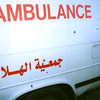
Since the early morning Physicians for Human Rights-Israel has received complaints concerning obstruction of medical teams from aiding the wounded in Rafah Refugee Camp. The road from Rafah to Khan Younis has been closed by the Israeli army. Therefore, as of now, 12wounded persons cannot be evacuated to the European Hospital- an advanced medical center. This leaves Yousef Al Najar Hospital – which does not have an intensive care unit and is lacking needed equipment – to deal alone with all the people and the enormous load. Israeli forces did not allow two ambulances to reach 8 wounded and 3 dead people; it also did not allow them to return to the hospital. Read more about Israel obstructs medical aid
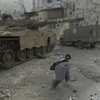
Gaza Community Mental Health Program (GCMHP), Defence for Children International/Palestine Section (DCI/PS), and Physicians for Human Rights-Israel condemn the use of a Palestinian child to carry explosives, and the Israeli occupation for using him in their propaganda. The organisations call on Israelis and Palestinians to keep children away from military acts. At the age of ten, K was working at Hawara checkpoint, near Nablus, after school hours. Children his age should go home, do their homework and play, but in the Occupied Territories in general childhood is lost amidst the Israeli oppressing occupation and the Palestinian struggle. Read more about Lost childhood
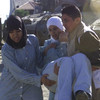
According to a new report released today by B’Tselem and Physicians for Human Rights, the IDF violates the right of residents of the Occupied Territories to obtain medical treatment. Dozens of staffed checkpoints and some 600 physical roadblocks have been set up within the West Bank in the framework of Israel’s siege policy. These obstacles to movement restricts the access of hundreds of thousands of Palestinians to medical treatment. In 70% of calls to the Red Crescent, the ambulances are unable to reach the patient’s house. Read more about Report: Restriction of movement harming Palestinians' health
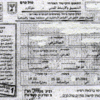
Physicians for Human Rights - Israel published its latest policy paper “At Israel’s Will: The Permit Policy in the West Bank”. Read more about At Israel's Will: The Permit Policy in the West Bank










